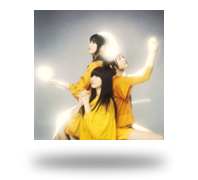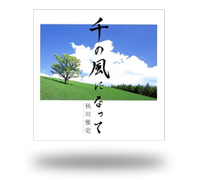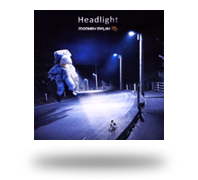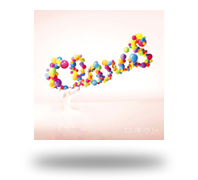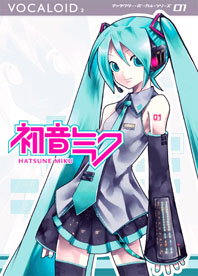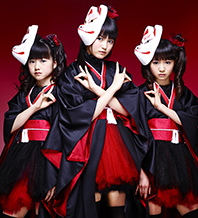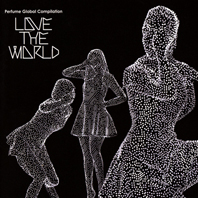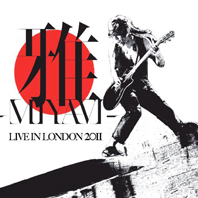逢いたくていま (aitakute ima) - MISIA
About This Song

Title: 逢いたくていま
Lyrics: MISIA
Music: 佐々木 潤
Song By: MISIA
Release Date: 18 Nov. 2009
逢いたくていま (aitakute ima) is the 23rd single by MISIA and was used as theme song for TV drama series JIN -仁- which was aired in 2009 (2 seasons 11 episodes each).
JIN -仁- is one of the most popular Japanese TV dramas in recent years and won many major awards.
The story is about a brain surgeon who was thrown back in time to 1862 (about 150 years ago), and finding out what the true meaning of being a doctor is.
Although not helpful for the Japanese study (old style language is spoken), the program can be helpful to learn about Japanese history, culture and behavior of the people.

Music Video
See Karaoke Song Album page before you start.
Original Music Video by MISIA
Karaoke with lyrics
Click here to view in larger size.
Lyrics


Meaning
Please note that song lyrics (and any art works) can have different interpretations.

Do you remember the day we first met?
Don't forget the memories of days gone by.
| 初めて hajimete | for the first time |
|---|---|
| 出会った deatta | met 出会う deau: to meet (by chance), to encounter ⇒ 出会った deatta: (past tense form, used adjectivally) |
| 日 hi | day |
| のこと no koto | about |
| 覚えてますか oboetemasu ka |
do you remember? 覚えている oboeteiru: to remember + ます か masu ka (indicates question) |
| 過ぎ行く sugiyuku | to pass by, to go by 過ぎ行く sugiyuku = 過ぎる sugiru: to pass, to elapse + 行く yuku: to go |
| 日 hi | day |
| の no | of |
| 思い出 omoide | memories |
| ...を o | Particle which indicates the object of a verb |
| 忘れずにいて wasurezu ni ite |
Keep not forgetting. (Don't forget.) 忘れる wasureru: to forget + ずに zuni: without doing + いる iru (indicating continuing action or state) ⇒ 忘れずにいて wasurezu ni ite (imperative form) |

To feel everything you had your eyes on, I looked up at the sky.
Are you there now and watching over me? Tell me.
| あなた anata | you |
|---|---|
| ...が ga | Particle which indicates sentence subject |
| 見つめた mitsumeta | had one's eyes on 見つめる mitsumeru: to fix one's eyes on, to gaze at ⇒ 見つめた mitsumeta: (past tense form, used adjectivally) |
| 全て subete | all, the whole |
| ...を o | Particle which indicates the object of a verb |
| 感じていたくて kanjite itakute |
because I want to feel ... 感じる kanjiru: to feel, to sense ⇒ 感じている kanjiteiru: (present progressive form, indicates continuing action or state) ⇒ 感じていたい kanjiteitai: (I) want to feel ⇒ 感じていたくて kanjite itakute: because I want to feel ... |
| 空 sora | sky |
| ...を o | Particle which indicates the object of a verb |
| 見上げた miageta | looked up at 見上げる miageru: to look up at ⇒ 見上げた miageta: (past tense form) |
| Her lover probably used to look at the sky often. She wants to share the same experience and feel him closer. | |
| 今 ima | now |
| ...は wa | Particle which indicates the main topic of a sentence |
| そこ soko | there (sky) |
| ...で de | at, in, on (Particle which indicates the place) |
| 私 watashi | I |
| ...を o | Particle which indicates the object of a verb |
| 見守っている mimamotte iru |
be watching over 見守る mimamoru: to watch over ⇒ 見守っている mimamotte iru: (present progressive tense) |
| の no | Particle which indicates question |
| 教えて oshiete | Tell me. 教える oshieru: to inform, to teach ⇒ 教えて oshiete: (imperative form) |

I want to see you now.
There are many things I want to tell you.
| 今 ima | now |
|---|---|
| 逢いたい aitai | want to see 逢う au: to see, to meet + たい tai: (I) want to |
| あなた anata | you |
| に ni | Particle which indicates the destination of action |
| 伝えたい tsutaetai | want to tell 伝える tsutaeru: to tell, to convey + たい tai: (I) want to |
| こと koto | thing, matter |
| ...が ga | Particle which indicates sentence subject |
| たくさん takusan | many, a lot |
| ある aru | to be, to have |

I want to see you. I want to see you.
I feel sad everytime I realize that I was searching for your presence.
| ねえ nē | hey (used to draw attention of the listener. used more by a female speaker) |
|---|---|
| 逢いたい aitai | want to see 逢う au: to see, to meet + たい tai: (I) want to |
| 気付けば kizukeba | if I realize 気付く kizuku: to realize, to become aware of + ば ba: if ... then (indicates supposition) |
| 面影 omokage | face, looks |
| 探して sagashite | to search 探す sagasu: to search, to look for |
| 悲しくて kanashikute | feel sad 悲しい kanashii: sad |
| She unconsciously search for his presence all the time. She feels sad when she noticed that she was doing it again. | |

Where are you? Hold me tight.
I'll always be here.
| どこ doko | where |
|---|---|
| ...に ni | Particle which indicates location |
| いる iru | to be, to stay |
| の no | Particle which indicates question |
| 抱きしめて dakishimete | Hold me tight. 抱きしめる dakishimeru: to hold someone tight = 抱く daku: to hold in the arms + しめる shimeru: to tie, to fasten ⇒ 抱きしめて dakishimete (imperative form) |
| よ yo | Sentence end suffix used in casual situation. It indicates emphasis. Mainly used by a female speaker. |
| 私 watashi | I |
| ...は wa | Particle which indicates the main topic of a sentence |
| ここ koko | here, this place |
| ...に ni | Particle which indicates location |
| いる iru | to be, to stay |
| よ yo | Particle which indicates strong will |
| ずっと zutto | continuously, all along, the whole time |

If I knew that I'll never be able to see you again, I would hold your hand and never let it go forever.
| もう mō | anymore |
|---|---|
| 二度と nido to | never again (with negative verb) |
| 逢えない aenai | cannot see 逢う au: to meet, to see ⇒ 逢える aeru: can see (potential form) + ない nai: not (verb-negating suffix) |
| ...こと koto | nominalizing suffix |
| ...を o | Particle which indicates the object of a verb |
| 知っていたなら shitteita nara |
if I knew 知っている shitteiru: to know ⇒ 知っていた shitteita: knew (past tense form) + なら nara: if |
| 繋いだ tsunaida | held 繋ぐ tsunagu: to hold (hand), to tie ⇒ 繋いだ tsunaida (past tense form, used adjectivally) |
| 手 te | hand |
| ...を o | Particle which indicates the object of a verb |
| いつまでも itsumademo | forever, eternally |
| 離さずにいた hanasazu ni ita |
kept not releasing 離す hanasu: to release, to let go (one's hold) + ずに zuni: without doing + いる iru: to keep, to stay (continuing action) ⇒ いた ita (past tense form) |

if I had honestly told you "Stay here with me" and cried, I wonder if you would still be here smilling beside me as before.
| ここにいて koko ni ite | Stay here. ここ koko: here + に ni: (Particle which indicates location) + いる iru: to be, to stay ⇒ いて ite (imperative form) |
|---|---|
| と to | Particle used for quoting |
| そう sō | such, like that |
| 素直に sunao ni | honestly |
| 泣いていたなら naiteita nara |
if I cried 泣く naku: to cry, to weep ⇒ 泣いている naiteiru: (present progressive form) ⇒ 泣いていた naiteita: (past progressive form) + なら nara: if, in case |
| 今 ima | now |
| も mo | also, too |
| あなた anata | you |
| ...は wa | Particle which indicates the main topic of a sentence |
| 変わらぬ kawaranu | unchanged 変わる kawaru: to change + ぬ nu: not (verb-negating suffix) |
| まま mama | as it is |
| 私 watashi | I |
| の no | Particle which connects a noun with another noun. No particular meaning. |
| 隣り tonari | next to |
| ...で de | Particle which indicates the place |
| 笑っている waratteiru | be smiling 笑う warau: to smile, to laugh ⇒ 笑っている waratteiru (present progressive tense) |
| かな kana | I wonder |

I want to see you now.
There are many things I want you to hear.
| 今 ima | now |
|---|---|
| 逢いたい aitai | want to see 逢う au: to see, to meet + たい tai: (I) want to |
| あなた anata | you |
| に ni | Particle which indicates the destination of action |
| 聞いて欲しい kiite hoshii | want (you) to hear 聞く kiku: to hear, to listen + 欲しい hoshii: I want (you) to |
| こと koto | thing, matter |
| いっぱい ippai | a lot |
| ある aru | to be, to have |

I want to see you. I want to see you.
Tears overflowed and time has just passed in vain.
| ねえ nē | hey (used to draw attention of the listener. used more by a female speaker) |
|---|---|
| 逢いたい aitai | want to see 逢う au: to see, to meet + たい tai: (I) want to |
| 涙 namida | tears |
| ...が ga | Particle which indicates sentence subject |
| あふれて afurete | overflow, and ... あふれる afureru: to overflow ⇒ あふれて afurete (Verb ending [て te] is used to join two sentences) |
| 時 toki | time |
| ...は wa | Particle which indicates the main topic of a sentence |
| いたずらに itazurani | in vain, uselessly |
| 過ぎた sugita | passed 過ぎる sugiru: to pass , to elapse ⇒ 過ぎた sugita (past tense form) |

I want to see you. Hold me tight.
I'll always be thinking of you.
| ねえ nē | hey (used to draw attention of the listener. used more by a female speaker) |
|---|---|
| 逢いたい aitai | want to see 逢う au: to see, to meet + たい tai: (I) want to |
| 抱きしめて dakishimete | Hold me tight. 抱きしめる dakishimeru: to hold someone tight = 抱く daku: to hold in the arms + しめる shimeru: to tie, to fasten ⇒ 抱きしめて dakishimete (imperative form) |
| よ yo | Sentence end suffix used in casual situation. It indicates emphasis. Mainly used by a female speaker. |
| あなた anata | you |
| ...を o | Particle which indicates the object of a verb |
| 思っている omotteiru | be thinking 思う omou: to think ⇒ 思っている omotteiru: (present progressive form) |
| ずっと zutto | continuously, all along, the whole time |

Even if the destiny cannot be changed, there are things I want to tell you.
| 運命 unmei | destiny, fate |
|---|---|
| ...が ga | Particle which indicates the object of action ("を o" is usually used for this case) |
| 変えられなくても kaerarenaku temo |
even if I cannot change 変える kaeru: to change ⇒ 変えられる kaerareru: can change (potential form) +ない nai: not (verb-negating suffix) + ても temo: even if, even though |
| 伝えたい tsutaetai | want to tell 伝える tsutaeru: to tell, to convey + たい tai: (I) want to |
| こと koto | thing, matter |
| ...が ga | Particle which indicates sentence subject |
| ある aru | to be, to have |

I want to go back to that day, that time.
If this wish comes true, I don't need anything else.
| 戻りたい modoritai | want to go back 戻る modoru: to go back, to return + たい tai: (I) want to |
|---|---|
| あの ano | that |
| 日 hi | day |
| あの ano | that |
| 時 toki | time |
| ...に ni | to (Particle which indicates the destination of action) |
| 叶うのなら kanaunonara | if (the wish) come true 叶う yoru: to come true + のなら nonara: if that's the case, if so |
| 何もいらない nani mo iranai |
don't need anything 何も nani mo: anything + いる iru: to need + ない nai: not (verb-negating suffix) |

I want to see you now.
There are many things I want you to know.
| 今 ima | now |
|---|---|
| 逢いたい aitai | want to see 逢う au: to see, to meet + たい tai: (I) want to |
| あなた anata | you |
| に ni | Particle which indicates the destination of action |
| 知って欲しい shitte hoshii |
want (you) to know 知る shiru: to know + 欲しい hoshii: I want (you) to |
| こと koto | thing, matter |
| いっぱい ippai | a lot |
| ある aru | to be, to have |

I want to see you. I want to see you.
There's nothing I could do and I just wished it all was a dream.
| ねえ nē | hey (used to draw attention of the listener. used more by a female speaker) |
|---|---|
| 逢いたい aitai | want to see 逢う au: to see, to meet + たい tai: (I) want to |
| どうしようもなくて dōshiyōmonakute | Particle which indicates the location どうしようもない dōshiyōmonai: it cannot be helped, there is no other way ⇒ どうしようもなくて dōshiyōmonakute: (Verb ending [て te] is used to join two sentences) |
| 全て subete | all, the whole |
| 夢 yume | dream |
| と to | particle used for quoting |
| 願った negatta | wished 願う negau: to wish, to hope ⇒ 願った negatta (past tense form) |

This heart of mine is still crying.
I'll always be thinking of you.
| この kono | this |
|---|---|
| 心 kokoro | heart, mind |
| ...は wa | Particle which indicates the main topic of a sentence |
| まだ mada | still |
| 泣いてる naiteru | be crying 泣く naku: to cry, to weep ⇒ 泣いてる naiteru: (present progressive form) "てる teru" is the casual style and the formal style is "ている teiru". |
| あなた anata | you |
| ...を o | Particle which indicates the object of a verb |
| 思っている omotteiru | be thinking 思う omou: to think ⇒ 思っている omotteiru: (present progressive form) |
| ずっと zutto | continuously, all along, the whole time |
Related Topics
Karaoke Song Album - 千の風になって (A Thousand Winds) by Masafumi Akikawa
Karaoke Song Album - Dream Fighter by Perfume
Karaoke Song Album - Headlight by MONKEY MAJIK
Karaoke Song Album - コネクト (Connect) by ClariS



